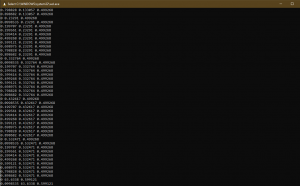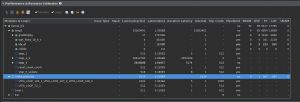This week was another week of great progress! The first thing I did this week was to resolve the interfacing issues with the FPGA. After debugging the segfault with a dummy kernel, I was able to get it to successfully transmission from the FPGA fabric to the host CPU. From here, I just switched out the dummy kernel for the most up to date kernel (more on this later) and uploaded the full project onto the board, and presto! Results!


The next thing that I helped with was synthesizing the most up to date kernel (as mention above). This kernel was a major milestone in that it was the first implementation to include everything (including the nearest neighbor algorithms). While Alice and Jeremy mostly handled the algorithmic part of the implementation, I handled some of the Vitis build errors. One example of which was a dependency between different iterations of the writeback loop. After analyzing the loop body, I was able to fix this bug by introducing the dependency pragma, which allowed Vitis HLS to correctly optimize this.
![]()
As an aside, solving the different HLS build warnings is incredibly important. As programmers, the traditional “wisdom” is that warnings are more or less ignorable. The issue with HLS is that in order to adapt to the warning, Vitis HLS will expend a lot of extra unneccessary hardware resources, potentially an order of magnitude more than what the board supports!
My primary task next week is to investigate and document different optimizations and pragmas we can use to accelerate the performance of the kernel. Another tasks is to potentially investingating refactoring the code so that creating the particles also happens off-chip. This would free up some extra space for extra unrolling and optimizations.
